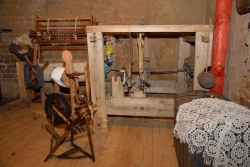When it comes to a discussion of biometrics in travel, it’s usually about security measures, as in facial and iris recognition software that identifies passengers and clears them through to their gates without ever having to show a passport.
AccorHotels, however, is using biometrics a bit differently to promote the merging of its loyalty program, Le Club AccorHotels, with the programs from Raffles, Swissotel, and Fairmont.
Starting Monday, potential AccorHotels guests can take their own biometrics tests via mobile or desktop that will help them determine where they should go and what hotel they should book. Called Seeker by Le Club AccorHotels, the program is meant to essentially mind read what travelers are not only thinking but feeling to help them in their travel decision-making process.
The tests use the webcam on a desktop and the front-facing camera on a smartphone to measure a person’s heart rate and pulse to determine what kind of a traveler a person is, based on six different psychological, personality, destination, and style metrics: tone (cold versus hot destinations; relaxation versus adventure trips); environment (traditional versus modern; rural versus urban); and company (solitude versus togetherness; family versus romance).
“It’s not a BuzzFeed quiz,” an AccorHotels spokesperson told Skift. “It’s more about a person’s impulses and his or her gut reactions.”
How It Works
In crafting these tests, the hospitality company worked with Mike Manh, senior creative developer of The Mill, a creative content agency, to confirm that the science behind these tests would be, well, accurate.
While Manh said the “biometrics are very accurate and reliable,” he also noted “as this is the first time we’re using them to detect travel preferences, we don’t have any long-term clinical trials to use as proof but, based on user reactions and responses, they’re quite accurate.”
AccorHotels gathered user reactions and responses not only through the mobile and desktop versions of the test, but also through a live entire studio experience where the company employed such devices as an Empatica wristband to measure heart rate, and a Musee EEG headband to measure a person’s brain waves. Skift participated in a live version of the test last month.
But the vast majority of people who take the Seeker biometrics test will do so either using their smartphones or desktops, or by visiting a special kiosk located in selected AccorHotels properties throughout North America. Using both audio and visual images, the test will note how quickly a person responds to each image presented to him or her, and each image relates to one of the six categories that are measured. According to the test, the more quickly someone responds to an image, the stronger the attraction.
While “the two experiences [on mobile and desktop versus the studio] are simply different … both experiences are testing against the same metrics, the same aesthetic preferences, personality drivers, and travel motivators,” explained Siobhan Mitchell, director of loyalty marketing for AccorHotels. In all three cases, it’s the heart rate and pulse that are being measured. For example, the desktop version of Seeker will use the webcam on a desktop to isolate and identify the red in someone’s face to determine his or her heart rate.
The kiosks are still being developed and will be deployed in a few hotels by the end of July. AccorHotels said the kiosks will “evoke the in-person experience but function as the online experience,” meaning they will employ similar usage of webcams to monitor heart rate.
“Your body doesn’t lie,” Manh said. “With all the stress of our 9-to-5 lives we need new ways to listen to it.”
The motivators that are measured by the test, such as whether a guest prefers colder climates to hotter ones, or relaxation over adventure, are meant to help travelers decide what kinds of travel they prefer.
“As a large hospitality group, AccorHotels has deep insights into why guests travel, where they go, who they like to travel with and what kind of experiences they’re looking for,” Sabrina Lillew, executive director of loyalty programs for AccorHotels said. “We used these consumer insights to define some key motivators, which were then combined with more basic travel decision-making needs like hot or cold climates to get a mix of functional and emotional stimuli.”
After a guest completes the test, he or she will be presented with destination and hotel suggestions, including “ones they may not have considered themselves,” Manh added. “We hope to answer a deeper need for them, and create the getaways they’ve always really wanted but may not have considered.” They will also receive a data visualization that graphically represents the results, as well as a write-up that they can share on their social networks.
As for the data captured via the tests, AccorHotels said that none of it will be stored — at least for now.
“For now, Seeker is simply an opportunity for consumers to learn more about themselves and where they might want to travel next,” Manh said. “But we are working on potential ways to use these preferences to create better and more meaningful experiences for our guests.”
Mitchell added, “We are not storing any individual’s Seeker data, but we will use the outcomes – the details on preferred travel destinations for example, to help us retarget our advertising, and provide depth to our member segmentation, both of which will ensure our follow up message delivery is relevant, meaningful and compelling.” The retargeting efforts, AccorHotels noted, does not require any personal data.
Is This Just a Marketing Gimmick?
Seeker by Le Club AccorHotels is, as an AccorHotels spokesperson told Skift, an opportunity for the company to “provide a personalized, preference-driven luxury loyalty experience” and, by “using a mix of art and science, demonstrate an understanding of [AccorHotels’] current and future members even better than they know themselves.”
“We wanted to explore the idea of service so intuitive,” Mitchell said. “We are literally reading your mind to deliver exactly what you want in a travel and loyalty experience.”
But beyond that, is this use of biometrics much more than simply a marketing tactic to promote the merging of the Fairmont, Raffles, and Swissotel loyalty programs into Accor’s own program?
A user doesn’t have to necessarily give AccorHotels any contact information to take the test or receive results, either. Once the test is completed, however, the site will take the user to the Le Club AccorHotels online form to sign up for the loyalty program, or to the booking form if they decide to book a stay. Members who book a stay through September 30 also receive an additional 1,000 bonus points. A download button also lets a user save her results and share them on social media and via email.
The Seeker program also shares some parallels, in some ways, with Marriott’s VR Room Service experiment, which the company deployed in 2015 to use virtual reality to reshape the storytelling narrative around travel. As much as Marriott said it wasn’t a marketing ploy, it certainly sounded a lot like one.
“If Accor wants to know deep information about you to market to you, it’s clear why any company would want to have this predictive information to enhance their marketing,” said Gary Leff, a frequent traveler and loyalty program expert who writes the View from the Wing blog. “That makes sense. But it’s unclear why a customer would want to go through the experiences to want to be better marketed to.”
“Most people don’t need a biometrics assessment to know if they like laying on the beach versus a more active destination,” Leff added.
If AccorHotels isn’t storing the data from Seeker now, how can it really improve on the level of personalization that it offers to its loyalty members, not just during the hotel booking process but during their stays?
“In the future, we can explore the further potential of Seeker — for instance, the possible integration of a member’s Seeker results into their Le Club AccorHotels guest profile, with their permission, of course — for even more heightened personalization and anticipation of a guest’s needs,” Mitchell said. “But for now, it’s simple - we want to help people discover where their heart wants to go next.”
The fact that AccorHotels reached out to a creative agency, The Mill, to help them execute the project, also suggests that this is more of a public relations and marketing-driven endeavor than a serious effort to collect and use customer data.
To that point, AccorHotels’ Mitchell said it’s taking its time in exploring the many possible use cases for this type of data.
“To our knowledge, this is the first time that biometrics and behavior analysis are being used to detect travel preferences in the hospitality space,” Mitchell said. “As such, this is an area with tremendous potential and possibilities, which need to be explored with careful through and consideration.”
At its core, however, Seeker by Le Club AccorHotels primarily serves as a marketing vehicle for the merging of the loyalty programs. As such, it’s part of a massive digital campaign that AccorHotels is launching in the hopes of attracting North American travelers seeking luxury experiences, many of whom may not necessarily be familiar with AccorHotels. That campaign will include video and content from the experiential in-person biometrics experience and the use of social media channels, influencers, and in-room/on-property promotions.
For now, at least, Seeker by Le Club AccorHotels might not be much more influential than a typical BuzzFeed quiz, albeit with the addition of biometrics, but it will be interesting to see if (1) consumers actually take the test, (2) how accurate the results are, and (3) if the test results actually do impact their travel decision-making process.
Further down the line, it’ll also be interesting to see if and how AccorHotels can use the information gleaned from these tests to deliver better marketing and better experiences for its guests.
“There is a real future in improved marketing analytics, using AI to understand customers at an individual level and offer the right kind of product marketing at the right time, not just based on preference but also timing,” Leff said. “In the future, it wouldn’t be surprising to see physical responses integrated into a brand’s understanding of consumer behavior to be used for marketing — but maybe this is an early iteration of it 10 years from now.”






.png)
